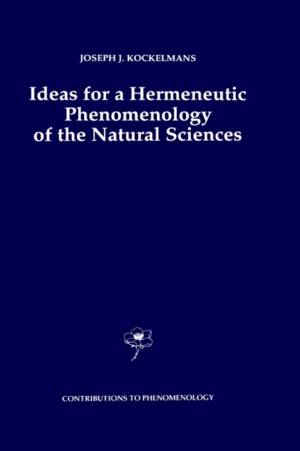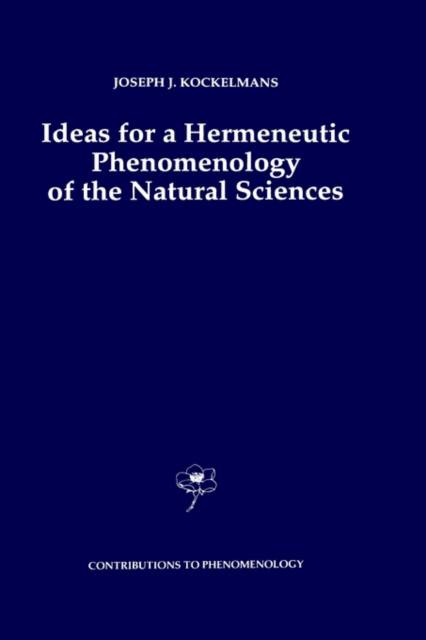
Bedankt voor het vertrouwen het afgelopen jaar! Om jou te bedanken bieden we GRATIS verzending (in België) aan op alles gedurende de hele maand januari.
- Afhalen na 1 uur in een winkel met voorraad
- In januari gratis thuislevering in België
- Ruim aanbod met 7 miljoen producten
Bedankt voor het vertrouwen het afgelopen jaar! Om jou te bedanken bieden we GRATIS verzending (in België) aan op alles gedurende de hele maand januari.
- Afhalen na 1 uur in een winkel met voorraad
- In januari gratis thuislevering in België
- Ruim aanbod met 7 miljoen producten
Zoeken
Ideas for a Hermeneutic Phenomenology of the Natural Sciences
J J Kockelmans
€ 167,95
+ 335 punten
Uitvoering
Omschrijving
I have always had a great interest in the philosophy of science. At first this interest led to reflections on the mathematical sciences;l later my focus shifted to the natural sciences;2 during the past twenty years or so my interest has also included the behavioral, social, and historical sciences) From the very start my interest was always combined with a concern for the history of the sciences. In philosophy of science proper, my main interest was not in logical, methodological, or even epistemological issues, although I obviously studied and taught the most important insights proposed in the leading publications in this large field of study. My concern has always been predominantly ontological; and in that area I have approached the relevant issues from a 4 phenomenological perspective. For what follows it is perhaps of some importance to mention here that I came to phenomenology in a rather indirect way, through the philosophy of Nicolai Hartmann. Yet it was mainly the influence of Herman Van Breda and Alphonse De Waelhens which led me directly to Husserl's phenomenology. At first I fo- cused almost exclusively on Husserl's phenomenology. Later I moved in the direction of the philosophy of Merleau-Ponty and, 1Cf. Joseph J. Kockelmans, Philosophy of Mathematics in the Middle Ages (in Dutch) (Langemark: Vonksteen, 1953); "On the Mode of Being of Mathematical Entities" (in Dutch), in Tijdschrift voor Philosophie, 16(1954), pp. 289-33l. 2Joseph J. Kockelmans, On Time and Space.
Specificaties
Betrokkenen
- Auteur(s):
- Uitgeverij:
Inhoud
- Aantal bladzijden:
- 314
- Taal:
- Engels
- Reeks:
- Reeksnummer:
- nr. 15
Eigenschappen
- Productcode (EAN):
- 9780792323648
- Verschijningsdatum:
- 31/07/1993
- Uitvoering:
- Hardcover
- Formaat:
- Genaaid
- Afmetingen:
- 166 mm x 243 mm
- Gewicht:
- 666 g

Alleen bij Standaard Boekhandel
+ 335 punten op je klantenkaart van Standaard Boekhandel
Beoordelingen
We publiceren alleen reviews die voldoen aan de voorwaarden voor reviews. Bekijk onze voorwaarden voor reviews.









